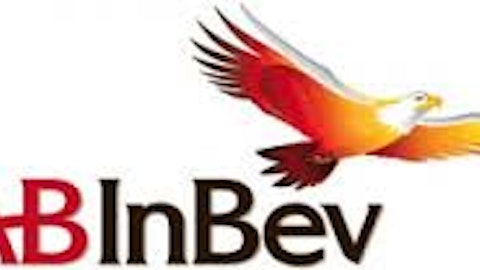Following PetSmart, Inc. (NASDAQ:PETM)’s 8% drop after reporting robust quarterly results, but forward guidance below estimates, potential investors might want to let this sleeping dog lie. However, a dip in the stock simply makes PetSmart, Inc. (NASDAQ:PETM) more fetching.
Fourth quarter 2012 earnings per share came in at $1.24, up 36% from the 91 cents earned in the same quarter a year ago. The EPS was also better than expected at $1.21 a share.

Looking ahead, the Phoenix, AZ based company forecasts EPS between $3.76 and $3.92, again a bit shy of analysts’ expectations of $3.97. It was that modest full year outlook that ruffled feathers at Nomura Securities and Piper Jaffray, prompting analysts at the firms to look meaner than a junk yard dog when they slashed their opinions and downgraded the stock. But RBC Capital Markets see a buying opportunity.
PetSmart, Inc. (NASDAQ:PETM), like others in the industry, may be overly cautious in its outlook. Retailers overall are taking a guarded position in forecasting company sales. The payroll tax, higher tax rate on the affluent, and rising gas prices have left consumers with left disposable income. In addition, the political wrangling on Capitol Hill over budget cuts has many worried about their jobs and certain entitlements. Plus, a push for a high minimum wage has some wary of retailers in general.
But spending on pet care continues to defy the odds. PetSmart, Inc. (NASDAQ:PETM) is at the head of the pack when it comes to sales. During the Great Recession, which slowed demand through most of the retail sector, pet store sales continued to yield growth.
The American Pet Products Association (APPA) reports 62% of U.S. households own a pet. The average dog or cat owner spends about $250 annually just on food. The APPA expects this pet industry driver to increase through 2013 and beyond.
Consumers have increasingly grown to perceive pets as members of the family, so products for pets can considered non-discretionary. Waning disposable income has scant effect on demand in this sector because consumers are apt to cut out leisure products or other splurges before skimping on pet food and toys. As disposable income rises, as it expected (even if tepidly) during 2013, the result is for increased purchases of pet goods and more premium purchases, like those found exclusively at PetSmart.
Competitors include big box stores like Target Corporation (NYSE:TGT) and Wal-Mart Stores, Inc. (NYSE:WMT). Some pet owners prefer not to claw through a PetSmart, Inc. (NASDAQ:PETM) store and instead get their paws on food and supplies for their pets while shopping for other household items. But you won’t find the same kind of specialty products and select services that PetSmart offers at these large discount retailers.




